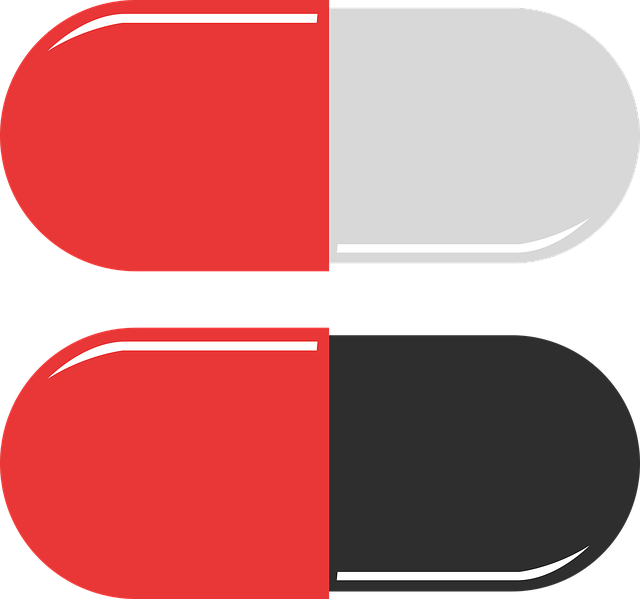GLP-1 drugs, mimicking the gut hormone GLP-1, offer a dual benefit in diabetes management: improved glycemic control and weight loss. They stimulate insulin secretion, inhibit glucagon release, and slow gastric emptying, aiding in blood sugar regulation and reducing appetite. These medications have received approval for type 2 diabetes treatment, enhancing care options and potentially mitigating long-term complications. With their innovative approach, GLP-1 drugs are poised to revolutionize diabetes management and improve patients' overall health.
“Unveiling the transformative potential of GLP-1 receptor agonists in diabetes management, this article delves into the multifaceted benefits of these innovative treatments. From improving glycemic control to managing weight and reducing appetite, GLP-1 drugs emerge as a game-changer in the diabetic patient’s arsenal.
We explore how these agonists work their magic, enhancing insulin secretion and sensitivity while offering potential cardiovascular advantages. Moreover, we scrutinize their role in minimizing diabetic complications, positioning GLP-1 drugs as a promising future for effective diabetes treatment.”
Understanding GLP-1 Receptor Agonists: How Do They Work?

GLP-1 receptor agonists, also known as GLP-1 drugs, are a class of medications designed to mimic the effects of the natural hormone glucagon-like peptide-1 (GLP-1). These drugs play a significant role in diabetes management by enhancing insulin secretion and reducing glucagon release in a glucose-dependent manner. This dual action helps lower blood sugar levels effectively.
These agonists work by binding to GLP-1 receptors in the pancreas, stimulating insulin production when blood sugar is high. They also slow down gastric emptying, leading to a feeling of fullness and reduced appetite, which can aid in weight management. Several GLP-1 drugs have been approved for use in treating type 2 diabetes, offering a valuable addition to the arsenal of diabetes management tools.
Improved Glycemic Control: A Key Advantage

GLP-1 receptor agonists, a class of drugs that mimic the effects of the gut hormone GLP-1, offer significant advantages in diabetes management, particularly when it comes to improving glycemic control. By stimulating insulin secretion in a glucose-dependent manner, these drugs help lower blood sugar levels effectively. This is especially beneficial for individuals with type 2 diabetes who often struggle to maintain stable blood sugar. The ability of GLP-1 drugs to enhance insulin release and inhibit glucagon secretion ensures a more balanced response to blood sugar fluctuations, leading to better overall glycemic control.
Moreover, the improved insulin sensitivity and reduced appetite associated with these agonists contribute to their overall effectiveness in diabetes management. This dual action not only helps in managing blood sugar but also supports weight loss, which is a crucial factor in mitigating the long-term complications of diabetes. As a result, GLP-1 drugs have emerged as a valuable tool for healthcare professionals in their quest to provide more effective and holistic diabetes care.
Weight Management: An Unconventional Benefit

One of the lesser-known yet significant advantages of GLP-1 receptor agonists is their impact on weight management, offering a unique approach to treating diabetes and obesity simultaneously. These drugs, often referred to as GLP-1 drugs, have been shown to reduce body weight in addition to improving blood sugar control. The mechanism behind this effect involves increasing feelings of fullness and reducing appetite, leading to decreased calorie intake.
This unconventional benefit is particularly interesting because it addresses the metabolic challenges faced by many individuals with diabetes, who often struggle with weight gain. By targeting both diabetes and obesity, GLP-1 drugs provide a comprehensive strategy for improving overall health and well-being, setting a new standard in diabetes management.
Reducing Appetite and Hunger Pangs

GLP-1 receptor agonists, a class of drugs designed to mimic the effects of the natural hormone GLP-1, offer a significant benefit in diabetes management: reducing appetite and hunger pangs. These drugs stimulate the release of insulin and suppress glucagon secretion, helping to lower blood sugar levels. Furthermore, they act on areas of the brain that control appetite, leading to decreased food intake and weight loss. This effect is particularly beneficial for individuals with type 2 diabetes who often struggle with excessive hunger and cravings, as it can aid in managing their calorie intake and improving overall glycemic control.
The mechanism behind this benefit involves GLP-1’s interaction with specific neurons in the brain, signaling satiety and reducing the motivation to eat. This not only helps in weight management but also has positive implications for cardiovascular health by potentially lowering blood pressure and improving lipid profiles. Thus, GLP-1 drugs provide a dual advantage, managing diabetes and contributing to overall wellness through their appetite-reducing properties.
Enhancing Insulin Secretion and Sensitivity

GLP-1 receptor agonists, a class of drugs designed to mimic the effects of the gut hormone GLP-1, offer significant advantages in diabetes management. One of their key roles is enhancing insulin secretion from the pancreas. This mechanism is particularly beneficial for type 2 diabetics, as it helps improve blood sugar control. By stimulating insulin release in a glucose-dependent manner, these drugs ensure a more balanced response to varying blood sugar levels.
Furthermore, GLP-1 drugs enhance insulin sensitivity, allowing cells to respond more effectively to insulin’s signals. This dual action not only facilitates better glycemic control but also contributes to weight loss, another common challenge in diabetes management. The ability of these drugs to stimulate both insulin secretion and improve insulin sensitivity makes them a valuable tool in the comprehensive treatment of diabetes.
Potential Cardiovascular Benefits

GLP-1 receptor agonists, a class of drugs designed to mimic the effects of the natural hormone GLP-1, offer more than just blood sugar control in diabetes management. One of their promising areas of benefit is potential cardiovascular effects. These drugs have been shown to reduce the risk of cardiovascular events such as heart attack and stroke in people with type 2 diabetes. This is particularly significant given that diabetes itself is a major risk factor for cardiovascular disease.
Research suggests that GLP-1 drugs may improve cardiovascular health by lowering blood pressure, reducing inflammation, and promoting better blood flow. They can also help with weight management, which is another important factor in cardiovascular wellness. By addressing these various aspects, GLP-1 receptor agonists have the potential to make a substantial impact on overall heart health in diabetics.
Minimizing Diabetic Complications

GLP-1 receptor agonists, a class of drugs that mimic the effects of the natural hormone GLP-1, offer significant advantages in diabetes management. One of their key roles is in minimizing diabetic complications, which are often severe and far-reaching. By improving glycemic control, these drugs can reduce the risk of long-term complications such as nerve damage (neuropathy), kidney damage (nephropathy), and eye problems (retinopathy). This is achieved through various mechanisms, including stimulating insulin secretion in a glucose-dependent manner, slowing gastric emptying to increase feelings of fullness and reduce food intake, and promoting beta-cell proliferation. As a result, GLP-1 drugs not only assist in blood sugar regulation but also contribute to overall diabetic care by potentially preventing or delaying the onset of these life-altering complications.
The Future of Diabetes Treatment: GLP-1 Drugs' Role

The future of diabetes management looks promising with the emergence of GLP-1 receptor agonists as a leading treatment option. These innovative GLP-1 drugs offer a dual advantage by not only lowering blood sugar levels but also aiding in weight management, addressing a significant challenge in long-term diabetes care.
With their ability to mimic natural hormones and enhance insulin secretion, GLP-1 drugs provide a more sustainable and patient-friendly approach compared to traditional insulin therapies. As research progresses, these drugs are expected to play an even greater role, potentially transforming the way we manage diabetes and improving the overall quality of life for patients worldwide.
